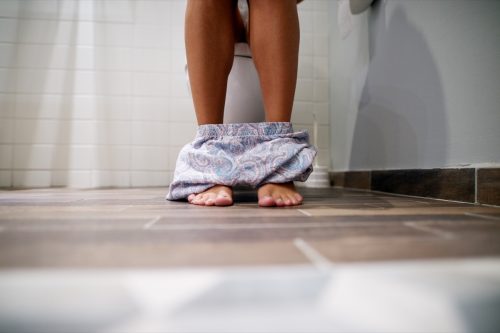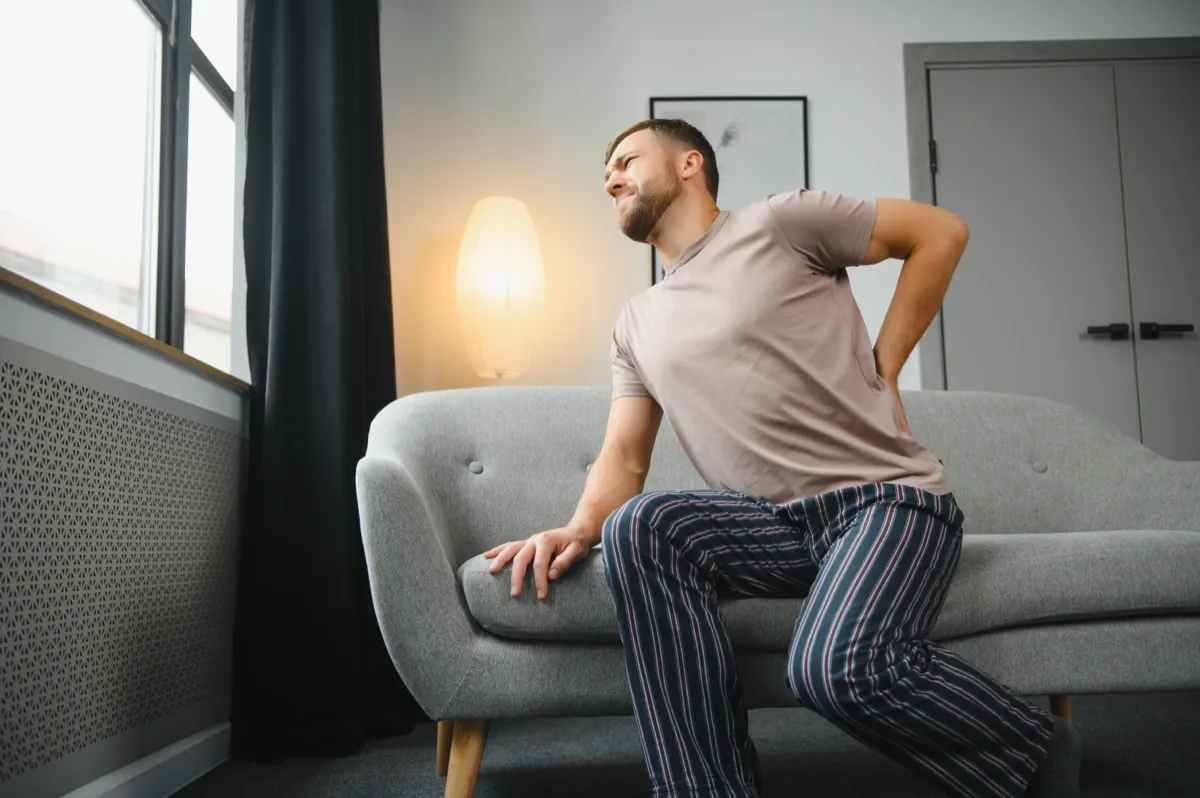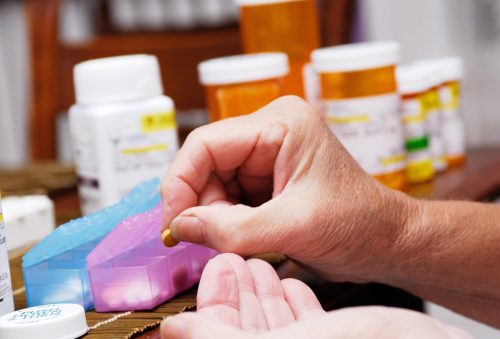Doctors Reveal 7 Reasons You Feel Like You Have to Pee All the Time

If you’ve ever experienced a constant need to pee—or wondered if that’s normal—you’re not alone. After all, bathroom habits take place behind closed doors, and it’s a topic on which most of us are unlikely to compare notes. Yet experts say it’s important to know how often you should urinate, since the frequent urge to go can indicate one of many underlying health conditions.
In answer to that question, Cleveland Clinic says most people visit the restroom between four and 10 times a day, and empty their bladders seven times a day on average. Any more than that, and it’s worth discussing with your doctor, their experts say.
According to urologist S. Adam Ramin, MD, the medical director of Urology Cancer Specialists in Los Angeles, feeling like you have to pee all the time can actually indicate two similar but distinct issues: Frequent urination and excessive urination.
“Frequent urination means frequent urges that drive a person to the bathroom to empty the bladder,” says Ramin, explaining that in this scenario, the body may still be making the right amount of urine.
“Excessive urination, on the other hand, means the body produces urine quickly, requiring the need to go to the bathroom frequently. In excessive urination, a high volume of urine production leads to the bladder reaching its fill capacity frequently,” he tells Best Life.
While nothing can take the place of a doctor’s evaluation of your specific symptoms, knowing the most common causes behind a constant urge to go can be a good place to start. Read on for seven suspects behind your frequent need to pee, according to urologists.
RELATED: Doctor Shares 3 Easy Ways to Stop Peeing So Much at Night.
1
You have a urinary tract infection (UTI).

Inflammation can trigger more frequent urination, as in the case of a urinary tract infection and other genitourinary tract infections.
“When bacteria enter the urinary tract, they cause urinary tract infections,” explains Martina Ambardjieva, MD, a urologist and the in-house medical expert for bedbible.com. “Bacteria irritate the wall and cause inflammation of the bladder and urethra. This makes you urinate more often, but usually with a small amount of urine.”
Other symptoms can include pain while urinating or pain in your lower back. UTIs are typically treated with antibiotics.
If you suspect you may be dealing with a UTI, know that it’s extremely common. Cleveland Clinic states that about half of females will get a UTI at some point, and doctors treat 8 to 10 million people each year for UTIs.
2
You’re under stress.

Your mental health can have a tremendous effect on your physical health, and that includes your urinary system.
“Frequent urination may sometimes be a reaction to anxiety or stress. It might be related to your body’s natural fight-or-flight response to stress,” Ambardjieva tells Best Life.
However, she admits that “scientists still don’t know what brain pathophysiological processes cause stress to affect the micturition reflex,” making it a difficult issue to address.
3
Something is putting pressure on your bladder.

Ambardjieva says that sometimes an abnormal structure in the body resulting from a pathological condition can cause a frequent need to pee. This can include cancerous or benign (non-cancerous) tumors in or near the bladder, a pelvic mass, bladder stones, and other obstructions.
To rule out the most serious possibilities, your doctor may begin by performing a non-invasive urinalysis test or opt for a cytology test.
Having an enlarged prostate, also known as benign prostatic hyperplasia (BPH), is another common mechanical cause that affects millions of men, mostly over the age of 50.
“BPH puts pressure on the urethra due to a prostate that has grown larger, which can block the flow of urine. As a result, this irritates the bladder so that even the slightest amount of urine can cause the bladder to contract, triggering the need to urinate,” explains David Samadi, MD, a prostate cancer surgeon and urologist located in New York City.
RELATED: What Happens to Your Body When You Hold Your Pee, According to Doctors.
4
You have an overactive bladder.

Overactive bladder (OAB) is a condition that causes the bladder muscle to involuntarily contract, even when the bladder is almost empty.
“People with overactive bladder will feel a sudden, strong urge to get to a bathroom right away. If left untreated, it can lead to urinary incontinence,” explains Samadi.
Lifestyle changes, pelvic floor exercises, and medication may all help alleviate your symptoms.
5
You have a spinal nerve irritation or injury.

You might not guess that your frequent need to urinate could be due to a spinal nerve irritation or injury, but Ramin says this neurogenic cause could be to blame.
Mount Sinai experts explain that this can occur because “neurological disorders and injuries to the nerves can interfere with the nerve messages between the brain and muscles that control the bladder and cause problems with bladder control and emptying (voiding dysfunction).”
Several underlying conditions can be associated with this type of irritation or injury, including Alzheimer’s, cerebral palsy, stroke, nerve disorders, diabetes, and Parkinson’s.
6
You have a sexually transmitted disease.

Infections caused by sexually transmitted diseases (STDs) are another common cause of frequent urination.
“A multitude of bacteria and viruses, including Chlamydia trachomatis, Neisseria gonorrhoeae, and Herpes simplex, may infect the urethra and produce urethritis,” says Ambardjieva. “Urethritis may also induce frequent urination.”
Staying up to date on testing can help ensure you receive prompt treatment if an STD is behind your symptoms. According to the Centers for Disease Control and Prevention (CDC), it’s important for most people to be tested for STDs at least once a year. However, they urge that “those who have multiple or anonymous partners” should be tested more often—every three to six months.
RELATED: 12 Safe and Easy Ways to Poop Instantly.
7
Your diet or medications have changed.

Ambardjieva adds that certain foods and beverages—alcohol, caffeine, and artificial sweeteners, for example—have a diuretic effect, which could increase your urge to urinate.
Similarly, many medications “are designed to clear the body of any extra fluid that may be present. As a direct result of this, they cause the patient to have to urinate more often,” she says.
Lithium, SGLT2 inhibitors used to treat diabetes (such as Jardiance and Farxiga), SSRIs (including Lexapro, Zoloft, and Prozac), Tricyclic antidepressants (TCAs), antihistamines, calcium channel blockers (CCBs), alpha blockers used to treat high blood pressure like (Flomax), the blood pressure medicine clonidine, and benzodiazepines can all cause excessive urination, according to GoodRX.